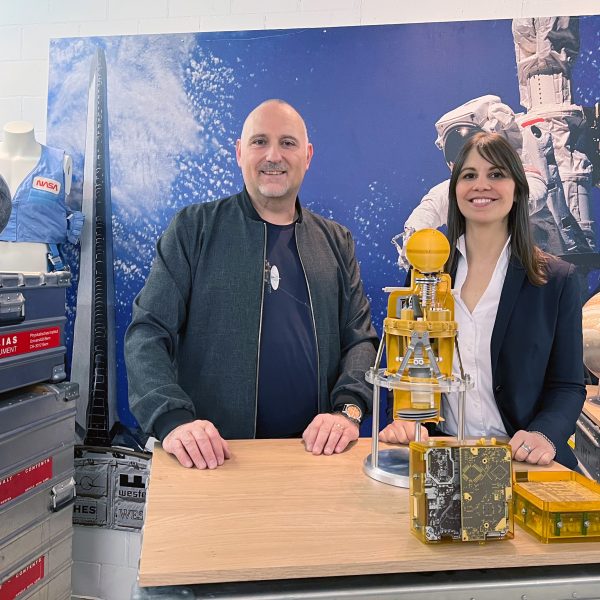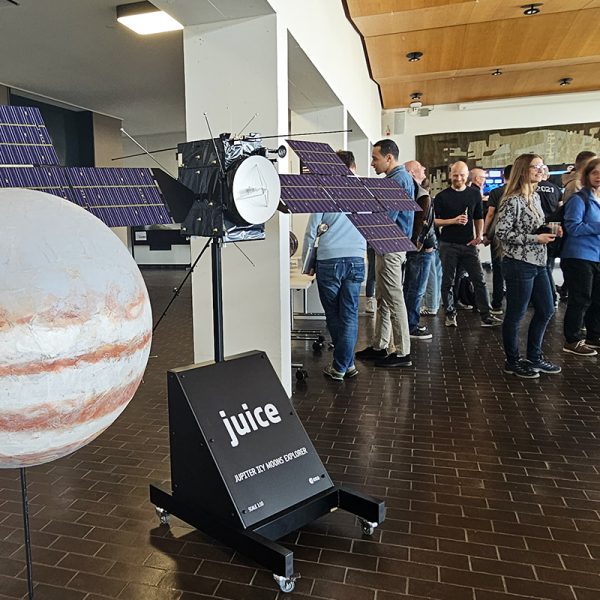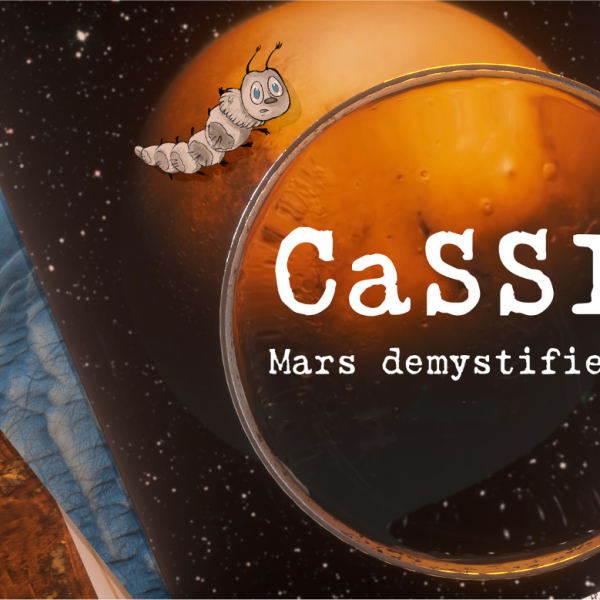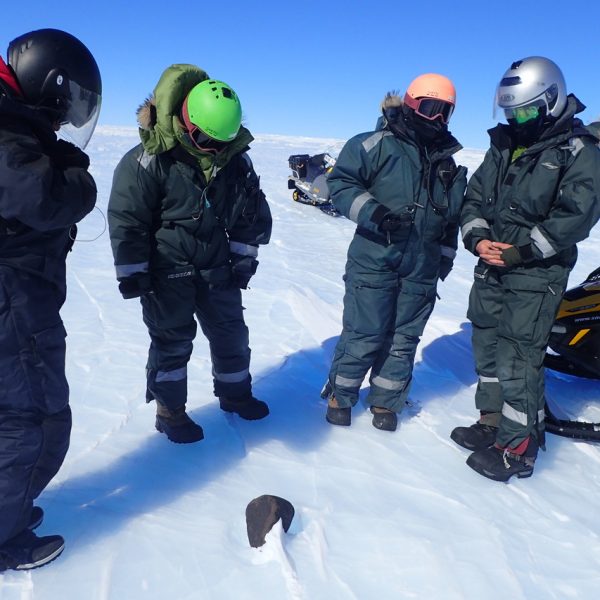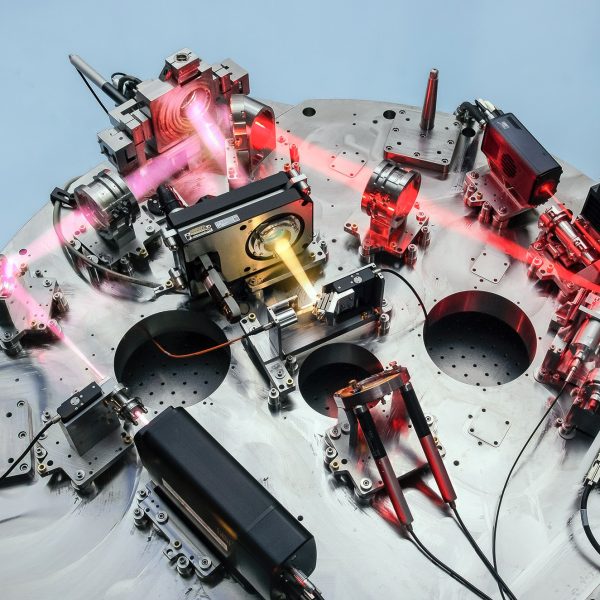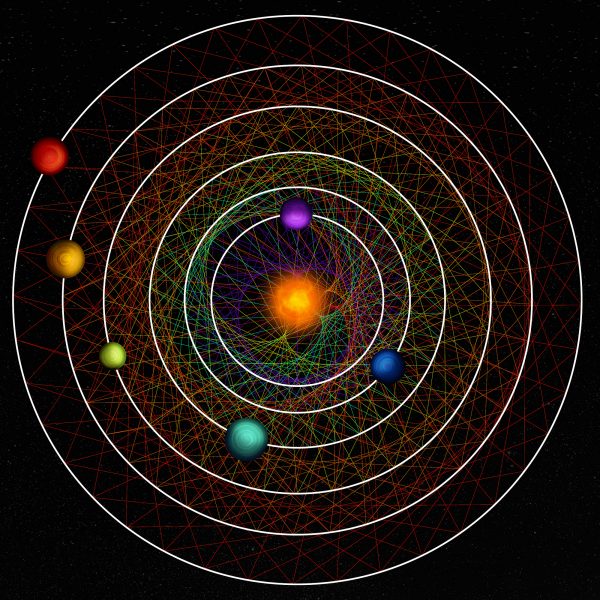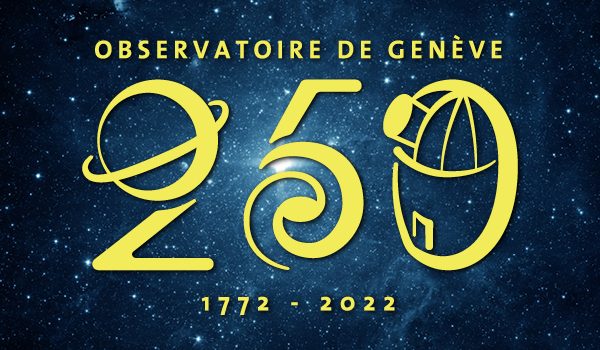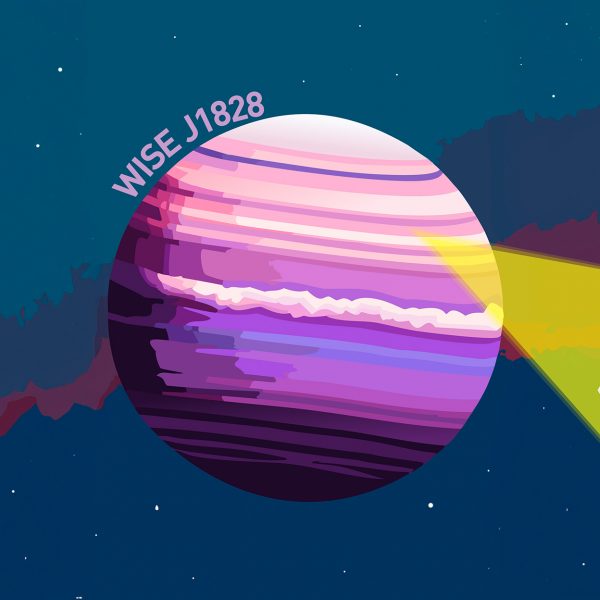News
Editorial
Dear readers, The year 2023 has been filled with exciting developments and events for NCCR PlanetS. This included important scientific output, events with the public, spacecraft launches, and critical missions extensions. At the end of the decade, the exploration of the Jupiter system will be the focus of two flagship class missions – something I […]
Continue Reading“Space Talk” – online broadcast about space exploration
Since April 2023, “Space Talk, the programme that brings outer space to Earth” videos have been released monthly. Guido Schwarz from the National Centre of Competence in Research (NCCR) PlanetS welcomes guests in the studio to talk about space topics. The online series is produced in cooperation with TeleBärn. Every day, the media publish news […]
Continue ReadingRetrospective on 2023 public events
The year 2023 has been rich in events for the NCCR PlanetS. It was mainly the occasion to meet with the public, but also with specific groups, schools and students in first place. Here is a short recap of the year events. US Ambassador visit United States Ambassador Scott C. Miller visited the University of […]
Continue ReadingAn ever-growing series of prizes for CaSSIS Mars demystified
Take a space instrument orbiting mars, turn its Principal Investigator (PI) into a detective, add a hint of comic-style images, and you obtain… CaSSIS Mars demystified – a science short film winning a plethora of the awards around the world! The first episode of CaSSIS Mars demystified focused on dust devils, those sort of weak tornado-looking […]
Continue ReadingSearching for meteorites in Antarctica
Finding meteorites is no easy task. Despite this, a team of scientists including NCCR PlanetS member Prof. Maria Schönbächler from ETH Zürich, were successful on an expedition. Their secret? Going to Antarctica where they found several new meteorites between December 2022 and January 2023, including a unique piece weighing 7.6 kilograms. Looking for a needle […]
View GalleryDecoding the secrets of distant worlds: Swiss collaboration to help elevate exoplanet research to new heights
The quest to unravel the universe’s mysteries takes a leap forward as the Near Infra Red Planet Searcher (NIRPS) consortium, jointly managed by the University of Geneva’s (UNIGE) Department of Astronomy and the University of Montreal, has received a cutting-edge boost from CSEM’s laser frequency comb technology. This laser frequency comb, a precise and stable […]
Continue ReadingExoplanets’ climate – it takes nothing to switch from habitable to hell
The Earth is a wonderful blue and green dot covered with oceans and life, while Venus is a yellowish sterile sphere that is not only inhospitable but also sterile. However, the difference between the two bears to only a few degrees in temperature. A team of astronomers from the University of Geneva (UNIGE) and members […]
Continue ReadingAn astronomical waltz reveals a sextuplet of planets
An international collaboration between astronomers using the CHEOPS and TESS space satellites, including NCCR PlanetS members from the University of Bern and the University of Geneva, have found a key new system of six transiting planets orbiting a bright star in a harmonic rhythm. This rare property enabled the team to determine the planetary orbits […]
Continue Reading250th anniversary of the Observatory of Geneva
The Observatory of Geneva has just celebrated its 250th anniversary. Now attached to the University of Geneva, it is one of the co-leading houses of the NCCR PlanetS with the University of Bern. Here’s a look back at the year’s festivities. A little history The Observatory of Geneva was founded in 1772. The astronomer Jacques-André […]
Continue ReadingAn ammonia trail to exoplanets
With the help of the James Webb Space Telescope, a team of researchers including members from the NCCR PlanetS at the Institute for Particle Physics and Astrophysics, ETH Zurich, measured ammonia in the atmosphere of a cold brown dwarf, showing that the isotopic abundance of ammonia can be used to study how giant gas planets […]
Continue Reading
